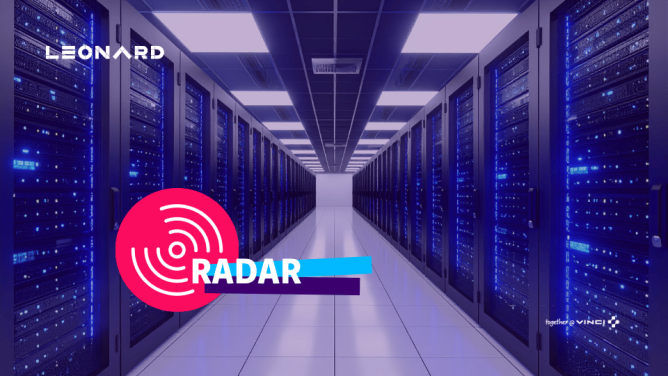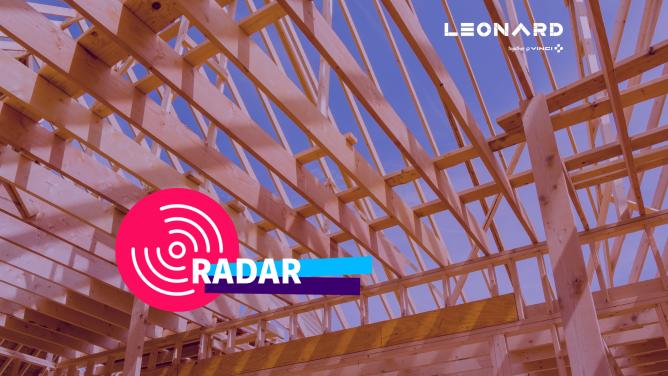Airbnb co-founder’s new startup Samara unveils its first model of tiny houses
Californian startup Samara has just presented its first model of ADU (Accessory Dwelling Units), small houses that can be easily installed in a garden or on free land next to an existing dwelling. Their selling price starts at $289,000 for a studio and $329,000 for a one-bed, including installation costs.
The factory-produced tiny-houses are manufactured in a standardized way, but are customisable when it comes to the paintwork, as well as the roof model, the windows and doors. They come fitted with solar panels, so the building powers itself. Samara offers customers a turnkey service, which includes design, building permit filings, fabrication and on-site installation. The entire design process is done online via a simple interface which allows customers to customize their model.
The company is one of many American startups to position itself in this buoyant niche, which provides a solution to the housing shortage in urban areas and benefits from recent relaxations of regulations in certain American states.
What originally started as an internal innovation team at Airbnb in 2016, the project was “excubated” early 2022 to form an independent startup, in which Airbnb retains a minority stake. Incidentally, Samara’s founding team is made up entirely of Airbnb alumni, including one of the platform’s co-founders Joe Gebbia, who left his role at Airbnb in July to fully commit to this new entrepreneurial project.
Terabase raises raises $44 million for a digital platform for managing solar panel projects combined with a construction automation system
Terabase Energy has just announced a Series B fundraising of $44 million. The American startup specialising in solar energy has raised a total of $52 million since it was formed in 2019 via a spin-out of the SunPower Corporation group.
Terabase presents itself as the first digital platform for managing the full life cycle of large-scale solar projects and combined it with a construction automation system. Its aim? To transform the way solar power plants are deployed to reduce installation times and costs, while ensuring better construction quality. The robotics-assisted workflow will also help improve worker health and safety, as they’ll no longer need to lift panels by hand during installation and maintenance.
This new fundraising round, which featured Breakthrough Energy Ventures, Prelude Ventures and SJF Ventures, will enable commercial deployment of the integrated solution in 2023. The startup has already announced its debut project using its automation solution, which will be the largest deployment of robotics in a solar power plant construction to date.
Heartland Ventures’ $52 million second fund proves its model is working
Heartland Ventures, an American venture capital firm based in Columbus, Ohio, has just finalised the closing of its $52 million second investment fund. Its first investment fund back in 2017 only reached $15 million. All the investors from the first fund invested again in the second.
Heartland Ventures’ economic model is rather unique: it secures investments from large companies in the Midwest to finance startups that develop tech that can meet the investors’ specific needs. Its other objective is to lure startups from the US East and West coasts to set up local offices in the Midwest, in order to be closer to their customers.
Half of the firm’s staff devote their time to understanding its investors’ challenges and defining their needs, while the teams based in New York and Silicon Valley are responsible for scouting relevant startups.
Several collaborations have already come to life: Indianapolis construction company Shiel Sexton is working with Firmus Ltd, an Israeli startup that can scan building plans for design errors to avoid construction delays, while Soil Connect, a marketplace which connects buyers and sellers of soil, aggregate and other building materials, has announced it will be entering the market in Indiana.
The new fund plans to make 20 investments over the next four years, ranging from between $500,000 and $2 million at seed or Series A stages. Three investments have already been made: Third Wave Automation (autonomous forklifts), Parkade (car park management application) and ProjectMark (marketing and sales platform for the construction industry).
There’s more…
French startup Beeldi raises €8 million for managing building data
In Israel, SAAS site management solution Beti raises $11 million to tackle the American market
Flat6Labs launches “Makers”, a construction tech innovation programme in Egypt
This article is selected from Leonard’s bi-monthly newsletter. Subscribe to receive the full version.


